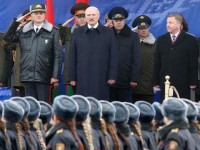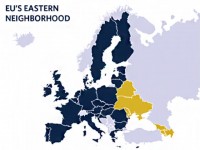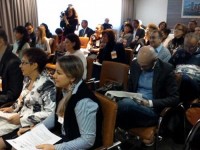Minsk’s muddled media clampdown could jeopardize warming of relations with the West.
Andrei Yahorau: Family is a key institution of the civil society

What institutions of the civil society Belarus is lacking today and how can we solve this problem?
His assessment of the situation with the major institutions of the civil society in our country made Andrei Yahorau, political scientist and the head of the Centre for European Transformation, in the interview with the EuroBelarus Information Service.
Before giving any evaluations, the expert suggests to meditate upon the notion of the civil society in general.
“It is the sphere of activity which doesn’t include commerce and state-citizen relations. And it is in this third sector where civil society institutions are formed. Thus, there is state, and there are separate individuals; and between them middle society institutions are located. That is why by aggregating people’s interests middle institutions protect citizens from the expansion of the state and provide for the interests of these citizens. On the other hand, such conservative pattern restricts voluntarism of the personality, and when the person escapes from social control and social relations, he/she behaves like a devil. And again, it is middle institutions that control this voluntarism, and basing on this social contract the “war of all against all” was stopped,” Andrei Yahorau highlights and wonders: “So what do these middle institutions look like?”
He believes that everything starts from such institution as a family: “Family is the chief institution of the civil society. On the one hand, it restricts personal voluntarism; on the other hand, it promotes realization of all personal interests. For instance, families in Armenia as an institution of the civil society level the problem of orphanhood; due to that, there are no orphanages in Armenia, whereas it remains a great problem for Belarus.”
What else can be regarded as an institution of the civil society? According to Andrei Yahorau, local communities are important elements of the civil society in any country: “Local communities are people living on the same territory and taking upon responsibility for developing this territory, implementing common interests, policy and local government.”
Among traditional institutions of the civil society churches and ecclesiae can be pointed out. One more important civil society institution is the union of professionals, a so-called “professional community”: “And here we cannot but mention all the other organizations of the civil society — voluntary unions of people who invest their own money, time and other resources into these unions. It is important that people set goals and frame their activity within these unions independently. All this we regard to be different institutions of the civil society.”
Fielding a question as to what kind of civil society institutions our country is lacking, the political scientist says that on a large scale we don’t have any: “Because practically all these institutions are either destroyed or underdeveloped. Belarus doesn’t have such institutions that could be called strong from the point of society. In fact, we should develop civil society institutions in Belarus anew.”
Others
-
In Belarus, a rising fear: Will we be the next Ukraine?
The relationship between Russia and Belarus has never been an easy one. The two former Soviet republics have spent the last two decades on a roller coaster ride — sometimes allies, sometimes adversaries in heated public rows.
-
The EU’s Benign Neglect of Eastern Europe
Between November 6 and December 11, 2015, Carnegie Europe continued its Capitals Series. In this second phase, the focus was on the EU’s Eastern neighbors, which the bloc has so often zigzagged over in trying to establish a coherent policy toward them collectively or bilaterally.
-
New ENP and Civil Society’s Role in Focus of the 7th EaP CSF Annual Assembly (Photo)
The 7th Annual Assembly of the Eastern Partnership Civil Society Forum was held in Kyiv on 19-21 November attracting around 300 participants, observers and guests who attended more than 20 sessions and a Networking Fair in the framework of the Assembly.
-
Is social economy a phenomenon for Belarus?
The conference “Social economy: how to be successful despite the crisis” launched in Minsk on October 22.








Comments
From farewell to a new Eastern policy and towards a new development
Poland and Germany were both initiators and drivers of a New Eastern policy linked to the Eastern neighborhood and Russia/Soviet Union.